
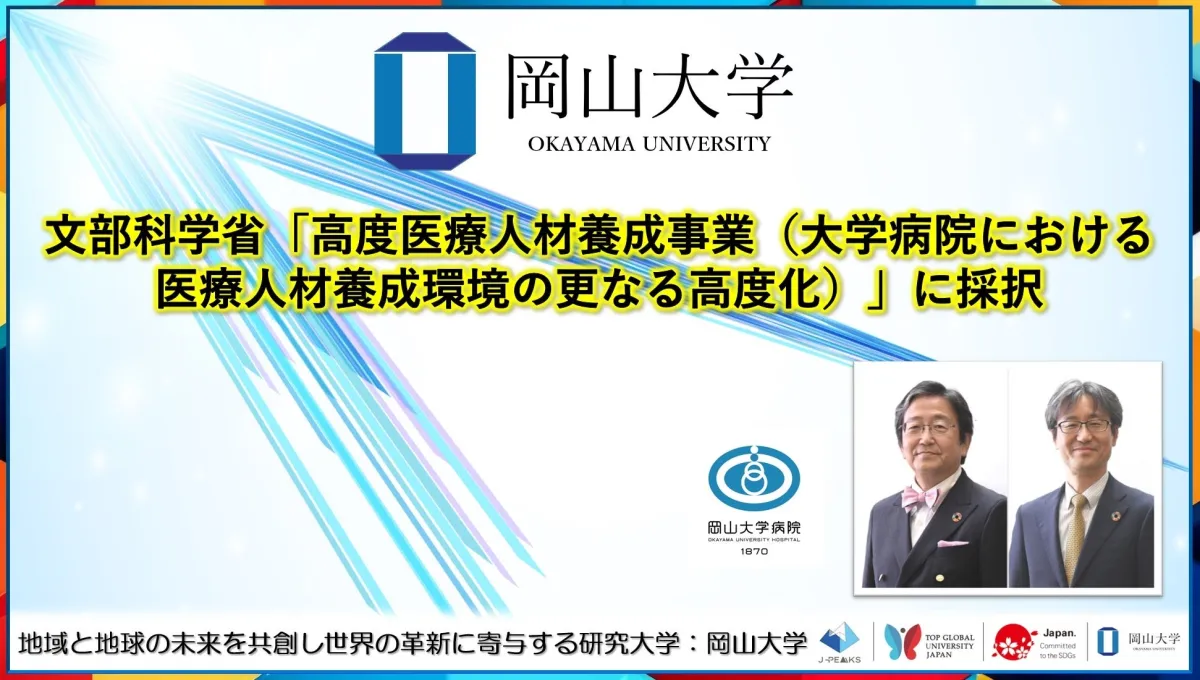
Okayama University Selected for Advanced Medical Training Project by MEXT
Okayama University Selected for Advanced Medical Personnel Training
Okayama University, located in Okayama City, has been chosen for the Ministry of Education, Culture, Sports, Science and Technology's (MEXT) Advanced Training Project for Medical Personnel, designed to enhance the educational environment at university hospitals. This announcement was made public on March 28, 2025, indicating a significant step forward for the institution in addressing the pressing needs of the medical field in Japan.
The initiative aims to support the establishment of state-of-the-art medical facilities that possess advanced educational and research capabilities. By enhancing the training functions of medical personnel at university hospitals according to their specific circumstances, the project aims to contribute to the development of future medical professionals who will lead Japan's healthcare. The growing shortage of surgeons across the country has prompted Okayama University Hospital to leverage its established strengths and networks with related hospitals to address this crucial societal issue.
President Yasuto Nasu stated, "Our university has strategically prioritized healthcare as one of its key research areas. This project follows our previous selection for MEXT's program aimed at enhancing educational environments for medical training courses. It reflects our continuous effort to create innovative solutions for diverse societal challenges, ultimately facilitating the nurturing of the next generation of highly skilled practitioners who can promote a well-being society. We are committed to not only expanding an excellent surgical training environment but also cultivating talents who can generate new values and tackle the challenges of Japan's future healthcare needs."
Moreover, Yoshinobu Maeda, the medical director and hospital president, emphasized that Okayama University Hospital, with a history exceeding 150 years, plays a vital role in the surgical medical field. Holding designations as a key hospital for genomic cancer medicine, clinical research, and other significant areas, the hospital collaborates with many stakeholders who have contributed to its legacy. President Maeda noted that this newly adopted project represents a pivotal step in evolving the training of advanced surgeons and maintaining the commitment to social betterment, adapting to change while preserving core values.
In addition to this initiative, Okayama University is also actively engaged in MEXT’s "Regional Core and Distinctive Research University Enhancement Program (J-PEAKS)," reinforcing its efforts in healthcare. The integration of this project with contrasting endeavors like J-PEAKS is expected to enhance the cultivation of high-level medical personnel responsible for Japan's future healthcare landscape.
Expectations are high for the collaborative efforts of Okayama University and Okayama University Hospital as they continue to challenge existing paradigms and push the boundaries in medical education and research. With this initiative, they plan to ensure that the next generation of surgeons is not only proficient in technical skills but also poised to respond actively to the evolving needs of society and healthcare.
In conclusion, the selection of Okayama University for this significant project underscores its commitment to advancing medical education and training, ensuring the preparation of high-quality healthcare professionals capable of making impactful contributions at local, national, and global levels. The university encourages ongoing support and engagement from the community as it embarks on this promising journey to enhance the future of healthcare in Japan.
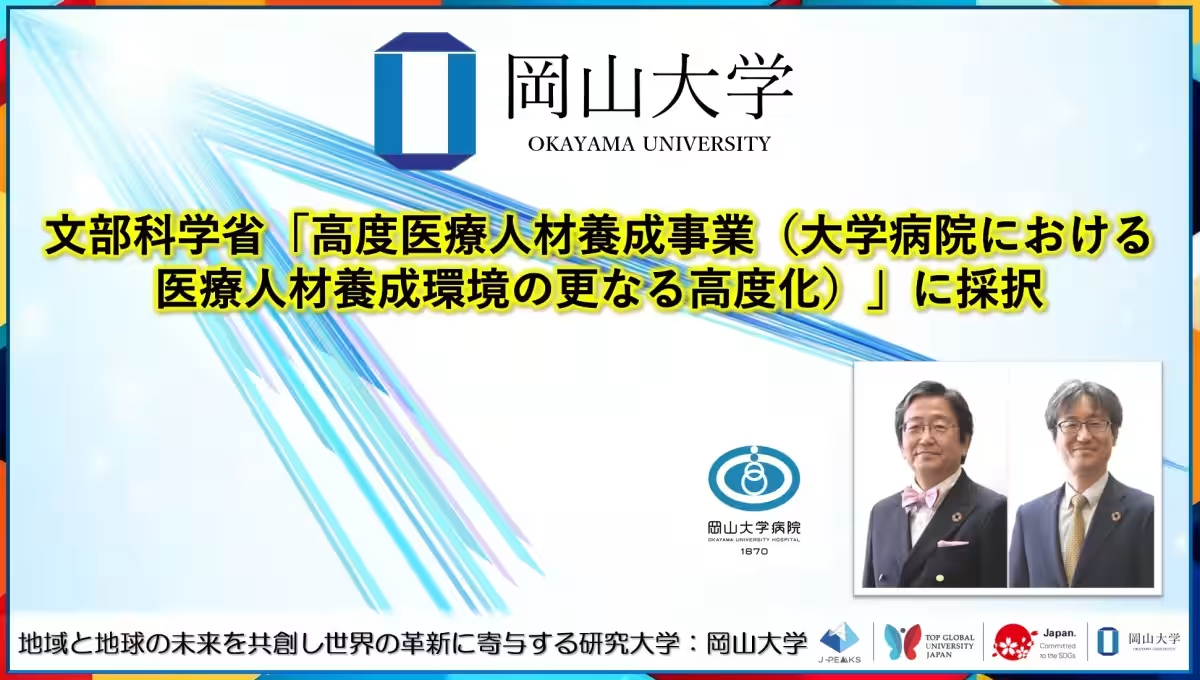
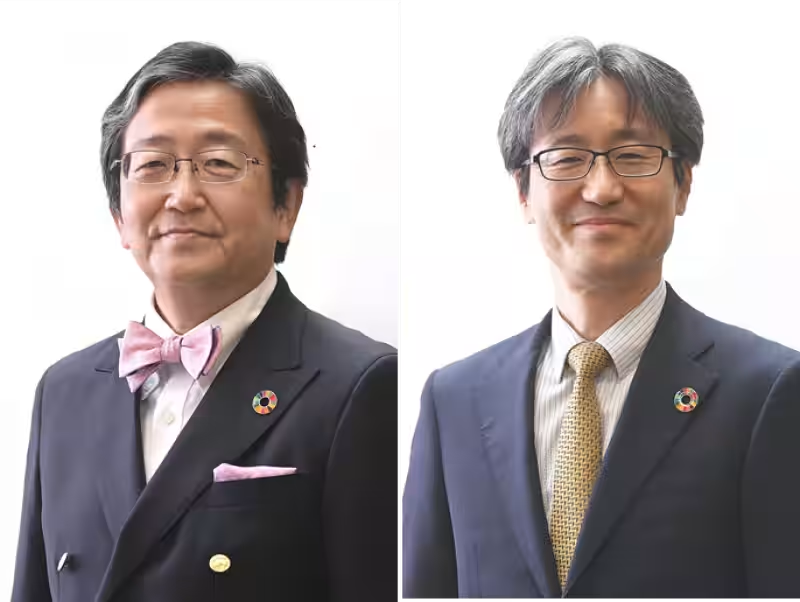

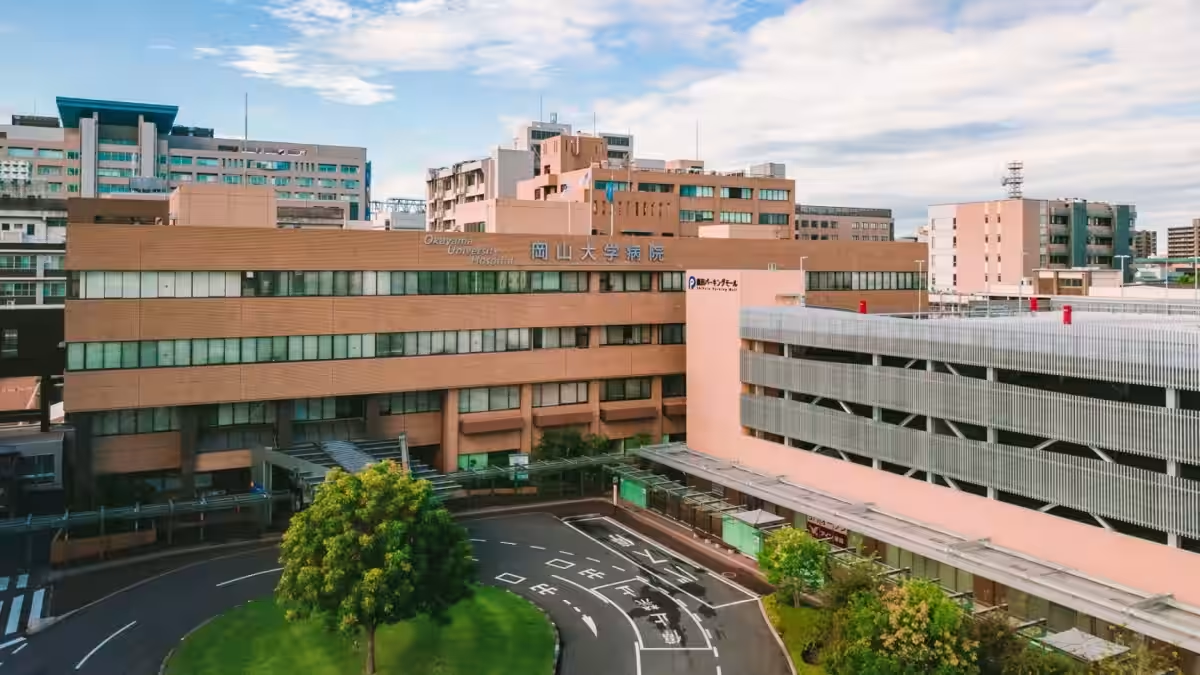
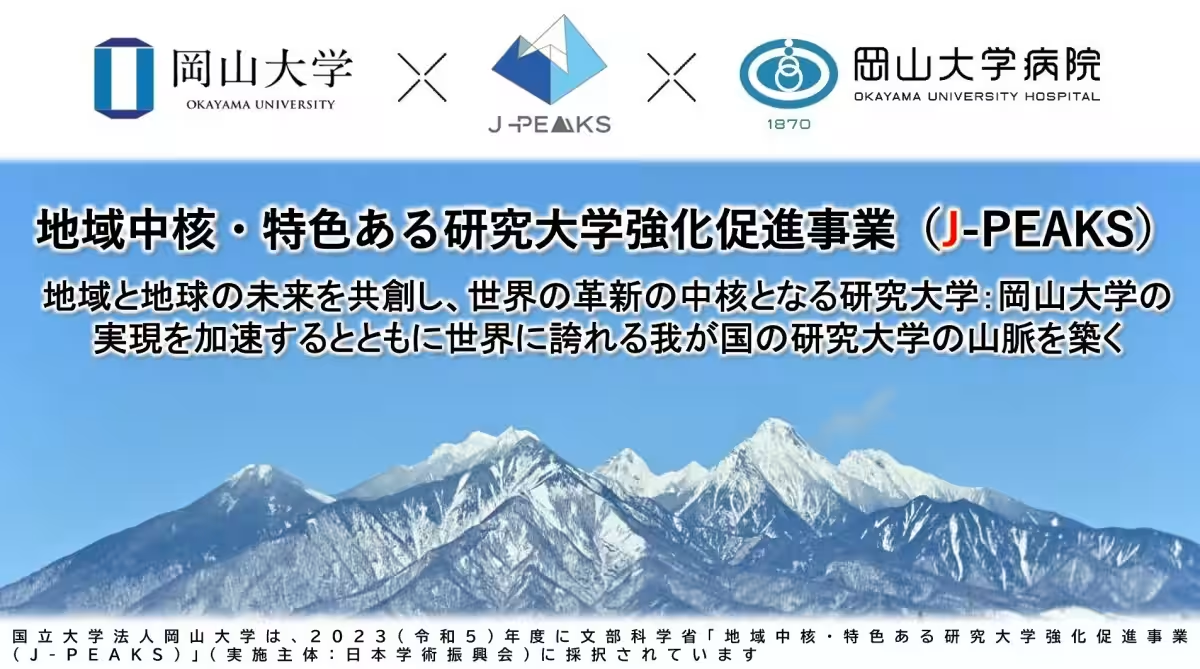
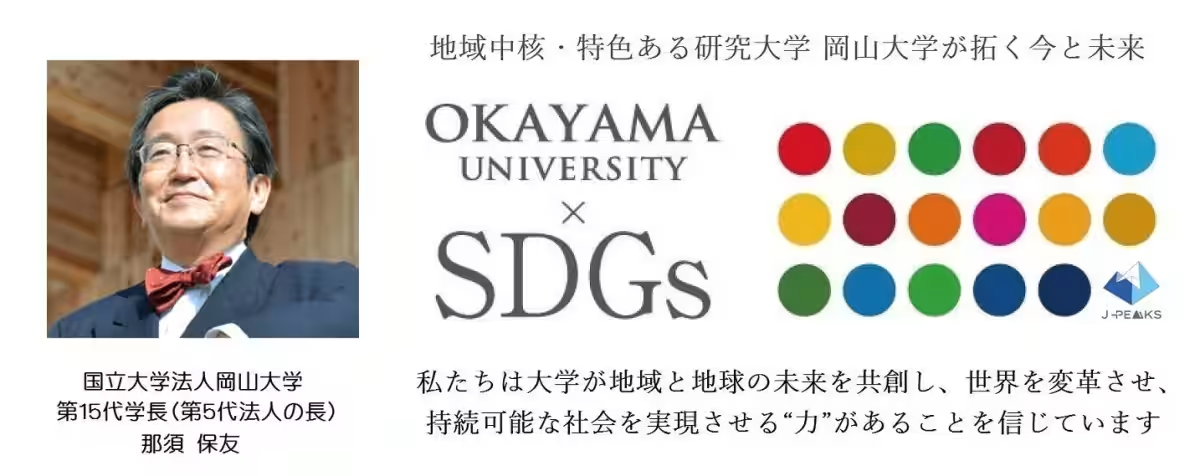
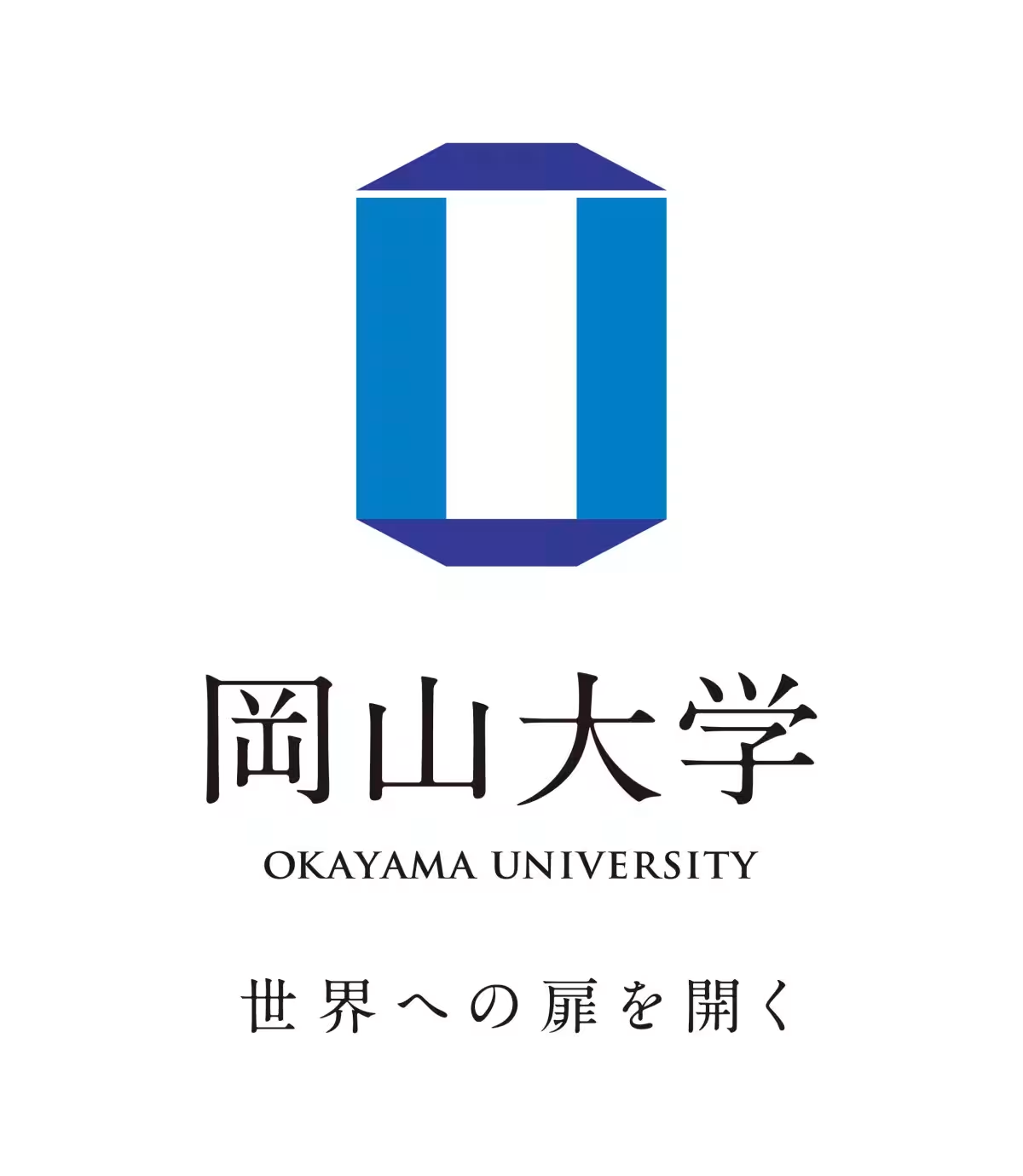
Topics Health)










【About Using Articles】
You can freely use the title and article content by linking to the page where the article is posted.
※ Images cannot be used.
【About Links】
Links are free to use.